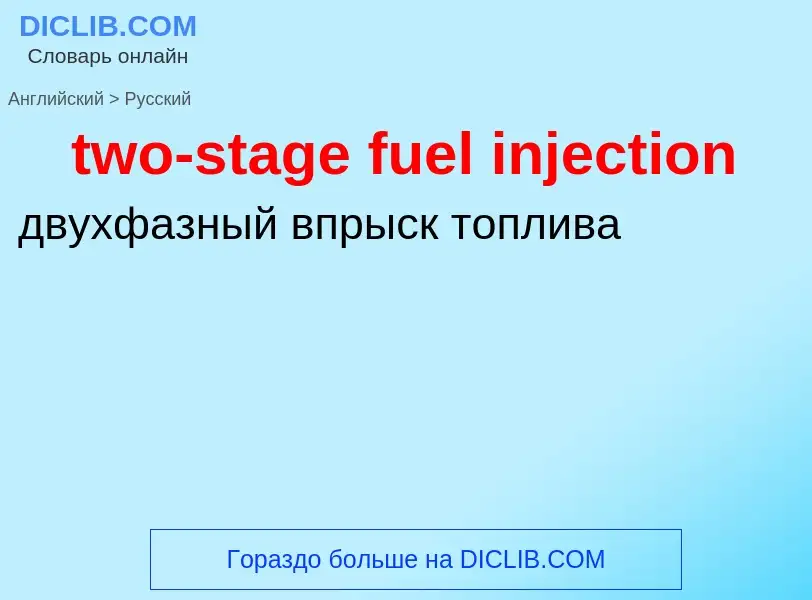Μετάφραση και ανάλυση λέξεων από την τεχνητή νοημοσύνη ChatGPT
Σε αυτήν τη σελίδα μπορείτε να λάβετε μια λεπτομερή ανάλυση μιας λέξης ή μιας φράσης, η οποία δημιουργήθηκε χρησιμοποιώντας το ChatGPT, την καλύτερη τεχνολογία τεχνητής νοημοσύνης μέχρι σήμερα:
- πώς χρησιμοποιείται η λέξη
- συχνότητα χρήσης
- χρησιμοποιείται πιο συχνά στον προφορικό ή γραπτό λόγο
- επιλογές μετάφρασης λέξεων
- παραδείγματα χρήσης (πολλές φράσεις με μετάφραση)
- ετυμολογία
two-stage fuel injection - translation to ρωσικά
реактивная техника
пусковая камера
[intrə'mʌskjulə]
общая лексика
внутримышечный
прилагательное
анатомия
внутримышечный
Ορισμός
Βικιπαίδεια
Hydrogen fuel enhancement is the process of using a mixture of hydrogen and conventional hydrocarbon fuel in an internal combustion engine, typically in a car or truck, in an attempt to improve fuel economy, power output, emissions, or a combination thereof. Methods include hydrogen produced through an electrolysis, storing hydrogen on the vehicle as a second fuel, or reforming conventional fuel into hydrogen with a catalyst.
There has been a great deal of research into fuel mixtures, such as gasoline and nitrous oxide injection. Mixtures of hydrogen and hydrocarbons are no exception. These sources say that contamination from exhaust gases has been reduced in all cases, and they suggest that a small efficiency increase is sometimes possible.
Many of these sources also suggest that modifications to the engine's air-fuel ratio, ignition timing, emissions control systems, electronic control systems and possibly other design elements, might be required in order to obtain any significant results. A modified vehicle in this way may not pass mandatory anti-smog controls. Due to the inherent complexity of these subsystems, a necessity of modern engine design and emissions standards, such claims made by proponents of hydrogen fuel enhancement are difficult to substantiate and always disputed.
To date, hydrogen fuel enhancement products have not been specifically addressed by the United States Environmental Protection Agency, as no research devices or commercial products have reports available as per the "Motor Vehicle Aftermarket Retrofit Device Evaluation Program." They do, however, point out that installation of such devices often involves illegally tampering with an automobile's emissions control system, which could result in significant fines. Environment Canada does have a research paper on the subject. In tests done in their laboratory in 2004 they found no improvement in engine efficiency or fuel economy.
There are also many aftermarket kits available for sale outside of the US. The fitting of these kits outside the US may not contravene laws in those countries where fitted.




.jpg?width=200)

![Using safety needles that prevent more than one use and accidental injections ensures sterility and prevents [[needlestick injuries]]. Using safety needles that prevent more than one use and accidental injections ensures sterility and prevents [[needlestick injuries]].](https://commons.wikimedia.org/wiki/Special:FilePath/Needle safety demo.gif?width=200)
